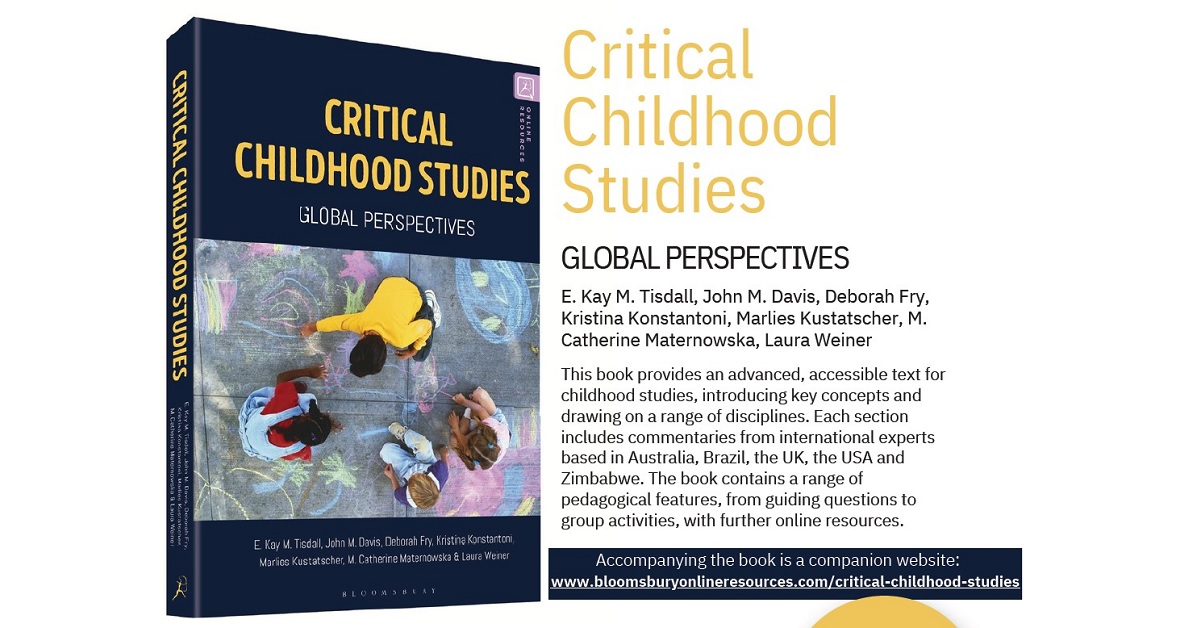What can Childhood Studies add to Policy and Practice

Authors: Kay Tisdall, John Davis, Debi Fry, Kristina Konstantoni, Marlies Kustatscher, Catherine Maternowska, and Laura Weiner
How we conceptualise children and childhood matters. It impacts what we study, how we study it and our conclusions; it also permeates how we form and deliver policy and practice.
Take, for example, the increasing recognition worldwide of how important quality early years learning is for young children. This has been propelled by the work of economists, who have persuasively researched how spending at a young age on early years learning has a long-term payback for economic, health and societal outcomes. This values young children and their learning – but also risks constructing childhood as ‘human investments’, which can ignore their rights as children here and now.
Take another example. Scotland is arguably ahead of many countries, in the participation rights of children when their parents separate. Should contact be contested by the parents, courts have a number of legal requirements and available mechanisms to ensure children’s views are heard and given due regard in the decisions about child contact. Young people very dramatically influenced just such measures, in the recent Children (Scotland) Act 2020, to improve their participation in contested contact cases. However, constructions by the courts that the children are vulnerable, and risk being made more vulnerable by the adversarial nature of Scottish courts, leads to children’s views not being heard, let alone weighed into the decision.
Such issues are illuminated by the fundamentals of childhood studies, such as childhood being socially constructed and children as social actors in their families, communities and society. We have recently published a textbook, that aims to provide an accessible but critical contribution to the field. It encourages those reading it to develop their own analysis and apply the results to their own interests – whether they be practitioners, policy-makers, or researchers. The book has guiding questions, challenge tasks, quotes from students and other experts – and even a website containing further interactive tasks and videos on key concepts and their applications.
We want to unsettle childhood studies, considering the most challenging areas and future opportunities. We invited international experts who are located in Australia, Brazil, the UK, the USA and Zimbabwe to write critical commentaries to help us do so. The book moves from the (arguably UK and to some extent European) foundations of childhood studies, to the contributions of a range of disciplines, children’s rights studies, intersectionality, decolonisation and more. We have a chapter that brings all these ideas together, to consider how they can be applied useful to policy and practice issues, with a particular consideration of how to prevent violence against children.
We think how we construct and conceptualise childhood and children really matters. Our webinar on Thursday November 9th provides an opportunity for us to debate and discuss, along with leaders in childhood studies. We hope you will join us on the journey for childhood studies – pushing it further, questioning its own positionality, challenging it to stretch itself both conceptually and in its applicability.
To reference the book:
Tisdall, E.K.M., Davis, J.M., Fry, D., Konstantoni, K., Kustatscher, M., Maternowska, M.C. and Weiner, L. (2023) Critical Childhood Studies: Global Perspectives. London: Bloomsbury



Comments are closed
Comments to this thread have been closed by the post author or by an administrator.